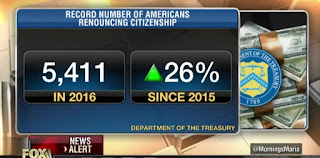On June 28th 2019, HB 7127 was signed by Florida Governor Ron DeSantis, requiring additional information to be submitted to the Florida Department of Revenue.
- The additional information must be submitted online at https://floridarevenue.com.
- A Tax Information Publication (TIP) was issued on August 26, 2019 and sent to taxpayers who may be affected by these new requirements.
-
Taxpayer’s name and federal employer identification number (FEIN);
-
Taxable-year beginning date and end date;
- Federal Taxable Income;
- Florida Apportionment Fraction;
- Election of Filing Basis;
- Florida Net Operating Loss (NOL) carryover to next taxable year;
- Florida Alternative Minimum Tax (AMT) Credit Carryover to next taxable year.
- Federal net operating loss deduction applied in determining federal taxable income (federal Form 1120 filer's, line 29a);
- Federal net operating loss carryover that was not applied due to the limitation under Section 172(a)(2), Internal Revenue Code (IRC) (80% of taxable income computed without regard to the deductions allowable under Section 172);
Form 8993 - Section 250 Deduction for Foreign-Derived Intangible Income (FDII) and Global Intangible Low-Taxed Income (GILTI)
-
Foreign Derived Intangible Income (FDII);
-
Amount of Foreign Derived Intangible Income (FDII)- related deduction under Section 250, Internal Revenue Code (IRC);
-
Amount of Global Intangible Low-Taxed Income (GILTI) included in the federal taxable income (federal Form 8993, Part IV, Line 8);
-
Amount of Global Intangible Low-Taxed Income (GILTI) - related deduction under Section 250, Internal Revenue Code (IRC) (federal Form 8993, Part IV, Line 9).
-
Amount of business interest expense deduction on the federal return, including any carryover (federal Form 8990, Part 1, Section I, Line 2);
-
Amount of disallowed business interest expense carried over from previous taxable year (federal Form 8990, Part 1, Section IV, Line 30);
-
Amount of current-year business interest expense not deducted due to the limitation (federal Form 8990, Part 1, Section IV, Line 31).
-
NAICS code for business activity generating the greatest amount of gross receipts for the taxpayer.
-
Taxpayer’s who fail to provide the required information by the submission date are subject to the greater of either, but not both:
- $1,000;
- 1% of the tax determined to be due.
-
An officer of the taxpayer or a person duly authorized to act on the taxpayer’s behalf must certify that the information submitted is true and correct.
-
The information must be submitted the earlier of days after the extended due date of the state corporate income/franchise tax return or 10 days after the state corporate/franchise tax return is filed.
-
Originally, if you have filed your Florida corporate income/franchise tax return or the extended due date for your return is prior to September 3, 2019, your additional required information will be considered timely if submitted by September 3, 2019.
-
However, as a result of Hurricane Dorian, the due date has been extended to October 27th for all taxpayers.
Read more at: Tax Times blog














